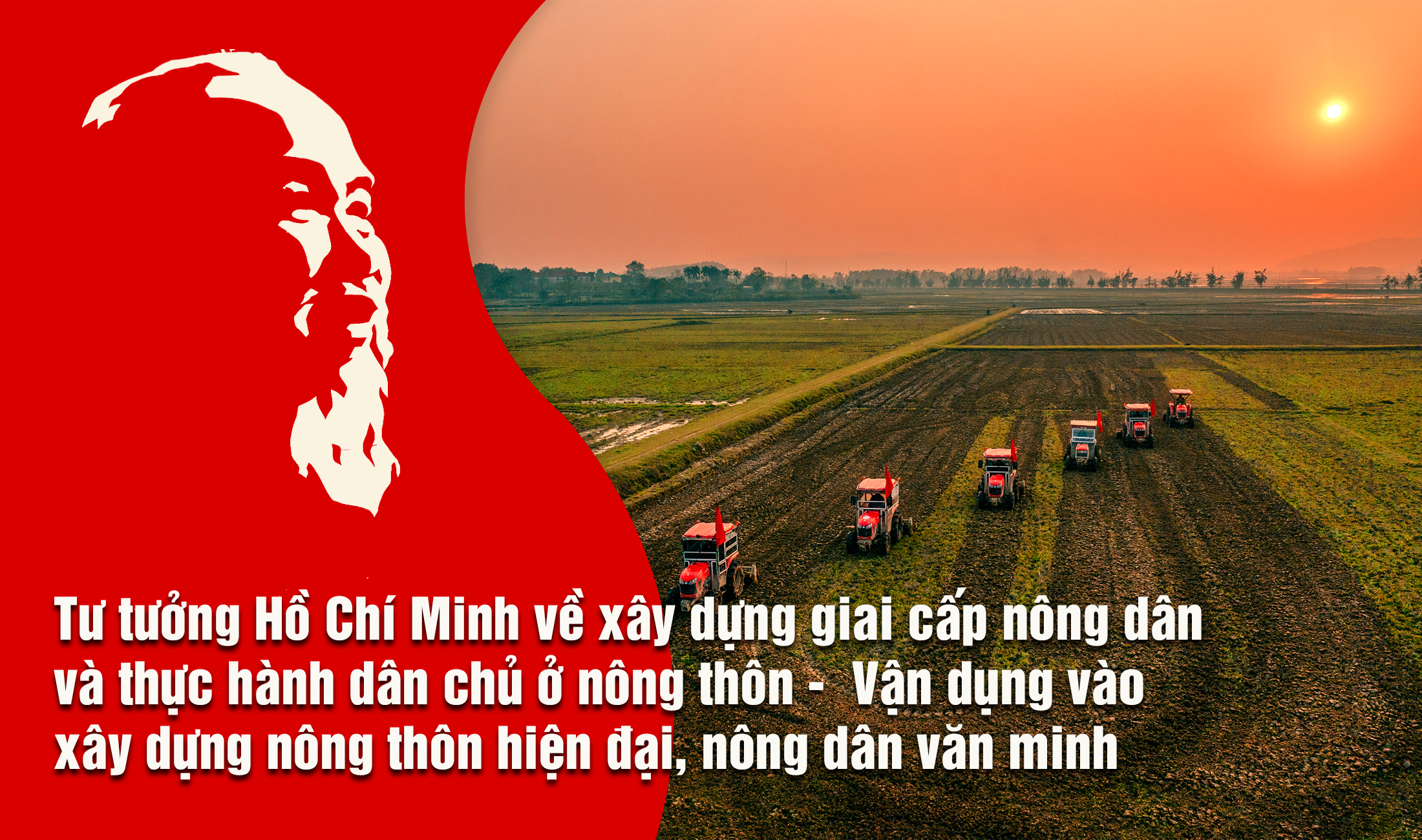


In October 1923, in Moscow (Russia), in his speech at the First International Peasants' Conference, Nguyen Ai Quoc stated: "Peasants in French colonies were exploited by two levels."(1)In the work “Common political knowledge” published in the newspaper Cuu Quoc under the pen name D.X, from January 16 to September 23, 1953, President Ho Chi Minh deeply analyzed the characteristics and situation of farmers under the colonial and feudal regimes: “Farmers were already poor, and were also subject to high taxes. Landlords charged too high rents and lent money at exorbitant rates, forcing farmers to often sell their wives and children. If there was a drought or flood, they would starve to death on the streets.”(2).
President Ho Chi Minh highly appreciated the role of the peasant class, as a revolutionary force, a force with "earth-shattering" power, if reorganized; at the same time, he clearly analyzed that peasants are a large force in society, with ardent patriotism and a deep sense of community. In the historical reality of the nation, the peasant class has always been the main force in the struggles for independence and protection of national sovereignty. In his report to the Communist International in 1923, Nguyen Ai Quoc pointed out: "The peasant masses are the most exploited and most miserable, but very patriotic."(3); therefore, when identifying the important role of the peasant class, Nguyen Ai Quoc clearly stated: “The proletarian revolution cannot be victorious in agricultural and semi-agricultural countries if the revolutionary proletariat is not actively supported by the peasant masses. That is an obvious fact for both revolutions – the bourgeois democratic revolution and the proletarian revolution.”(4).
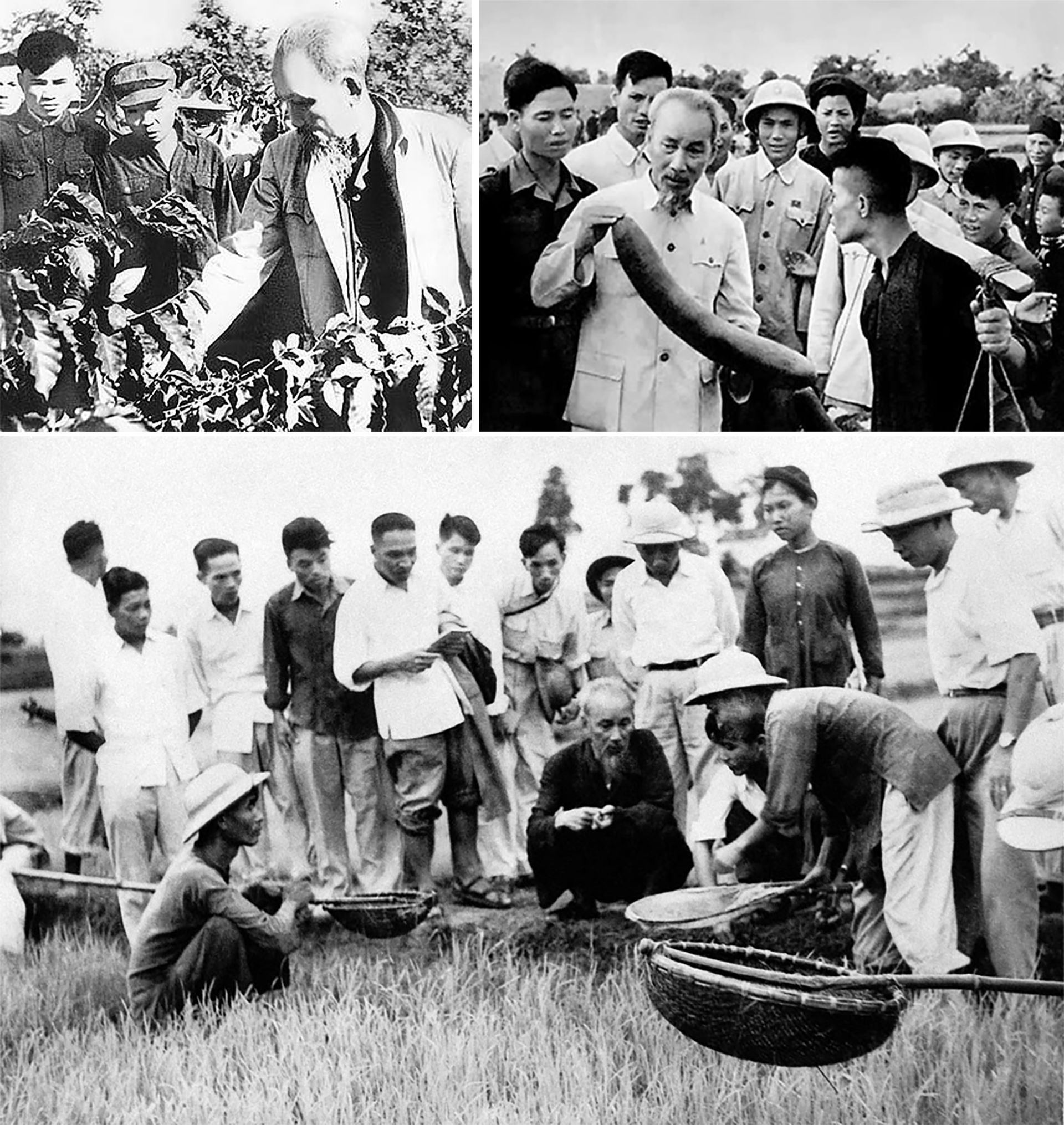
Realizing the role of farmers, since the Communist Party of Vietnam was founded, the Party has had a policy and sent Party members deep into rural areas to mobilize and gather farmers. Therefore, farmers have trusted and followed the Party to make the victory of revolutionary movements from 1930 - 1931, from 1936 - 1939, from 1939 - 1945, culminating in the victory of the August Revolution in 1945, taking power into the hands of the people. In a letter to the National Conference of Farmers for National Salvation in November 1949, President Ho Chi Minh emphasized: "Farmers have great strength, ardent patriotism, and a resolute spirit of struggle and sacrifice."(5)for independence and freedom. President Ho Chi Minh affirmed: “The majority of our people are farmers. Everything must rely on farmers. Only when farmers are enlightened and enthusiastic can the resistance war be quickly victorious, national construction be quickly successful, and farmers be liberated.”(6).
He also pointed out: "Farmers are a very great force of the nation, a very loyal ally of the working class/ To successfully fight for national construction, to truly gain independence and unification, we must rely on the strength of the farmers."(7). Clearly assessing the role of the peasant class in the people's national democratic revolution, the Resolution of the Third Party Congress in September 1960 affirmed: "The people's national democratic revolution is essentially a peasant revolution led by the working class."(8). In the article “To Vietnamese Farmers” published in the newspaper Tac Dat No. 1 on December 7, 1945, President Ho Chi Minh wrote: “All humans “take food as their first priority” (meaning that they need to eat first); in our country, “take agriculture as their foundation” (meaning that farming is their main occupation). If people want to eat enough, they must cultivate a lot. If the country wants to be rich and strong, it must develop agriculture. So we should not leave any inch of land fallow. We must value every inch of land as an inch of gold.”(9).
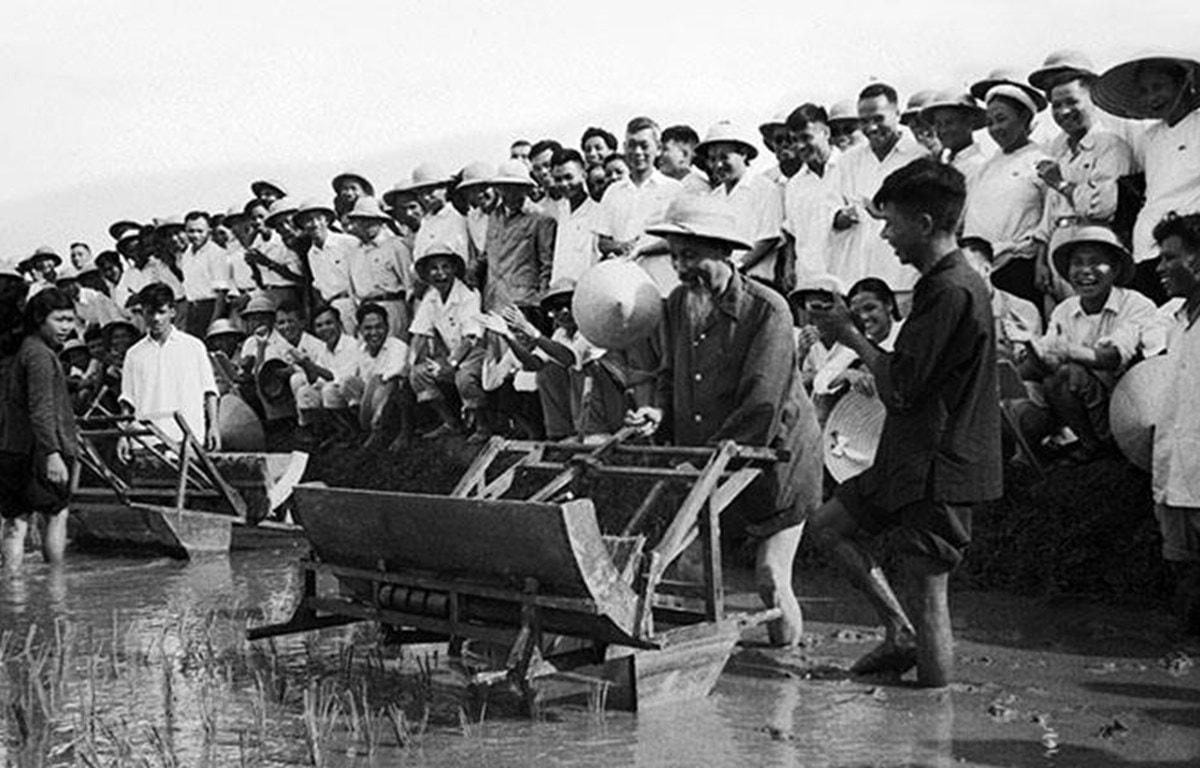
In fact, farmers are the direct production force, creating wealth to feed society. In the process of building the country, President Ho Chi Minh paid great attention to the issue of farmers and agriculture: "The government relies on farmers, relies largely on agriculture/ If our farmers are rich, our country will be rich. If our agriculture is prosperous, our country will be prosperous. If farmers want to be rich, if agriculture wants to be prosperous, there must be cooperatives"(10); President Ho Chi Minh affirmed: “Agricultural cooperatives are the logistics army of the army fighting on the front. Cooperative members are production soldiers, they need to try as hard as soldiers on the front. Cooperative members must produce well so that our army and people can eat well and win. Therefore, the tasks of agricultural cooperatives, of cooperative members, and of cadres working in rural areas are very important.”(11).
It is clear that very early on, President Ho Chi Minh clearly saw the position and role of cooperation and association in agriculture. However, President Ho Chi Minh affirmed that the peasant class must have the working class - the most advanced class - to lead and guide through the vanguard, the Communist Party of Vietnam. From the experience of the Russian October Revolution, President Ho Chi Minh pointed out: "To implement the worker-peasant alliance because that is the surest guarantee of the victories of the revolution. Only the worker-peasant alliance led by the working class can resolutely and thoroughly overthrow the counter-revolutionary forces, seize and consolidate the working people's government, complete the historical task of the national democratic revolution and advance to socialism"(12)He deeply analyzed the worker-peasant alliance, the alliance between the vast peasant masses and the working class as the main basis for establishing a broad and solid national front.
On that basis, the Vietnamese peasant class, under the leadership of the Communist Party of Vietnam, made many important and great contributions to the victory of the Vietnamese revolution, especially in the two resistance wars against French colonialism and American imperialism. Implementing the slogan "All for the front", all for victory, "Not a pound of rice missing, not a soldier missing", farmers and soldiers and people across the country made the victory in the Spring of 1975, unifying the country.
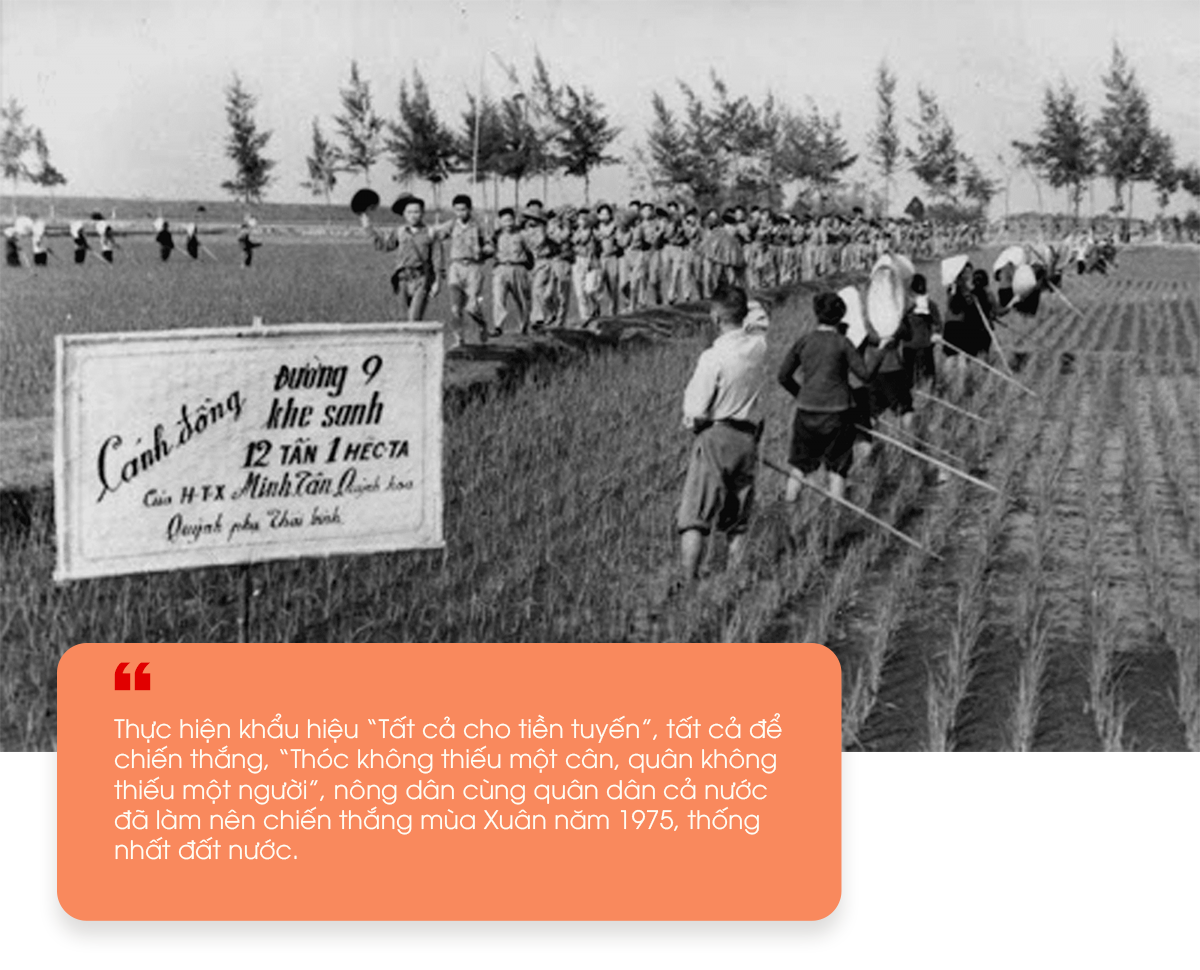

Implementing Directive No. 30-CT/TW, dated February 18, 1998, of the Politburo (VIII tenure), on "Building and implementing the grassroots democracy regulations", our Party has had many correct policies on democracy, considering democracy as both the goal and the driving force of national development, the nature of the socialist regime, the goal and driving force of the renovation process; accordingly, the implementation of the democratic regulations in rural areas according to Ordinance No. 34/2007/PL-UBTVQH11, dated April 20, 2007, of the National Assembly Standing Committee, on "Implementing democracy in communes, wards and towns" emphasized that the people's awareness of democracy and democratic practice, especially the heads of Party committees and authorities at all levels, has had positive changes, increasingly better implementing the people's mastery. Direct democracy and representative democracy are emphasized, ensuring publicity, transparency, and accountability of the heads of the local government. The heads of the Party committees and local governments have increased contact, dialogue, listening, receiving, and resolving the people's concerns and legitimate aspirations.
Pursuant to Decision No. 10/2022/QH15, dated November 10, 2022, of the National Assembly, on the "Law on Implementing Democracy at the Grassroots Level", accordingly, communes, wards and towns shall basically and fully implement the contents of public disclosure to the people, discuss, decide and supervise projects, planning, land use plans, industrial zones and clusters, residential areas, land recovery compensation prices, publicize socio-economic development plans, new rural construction programs, etc.
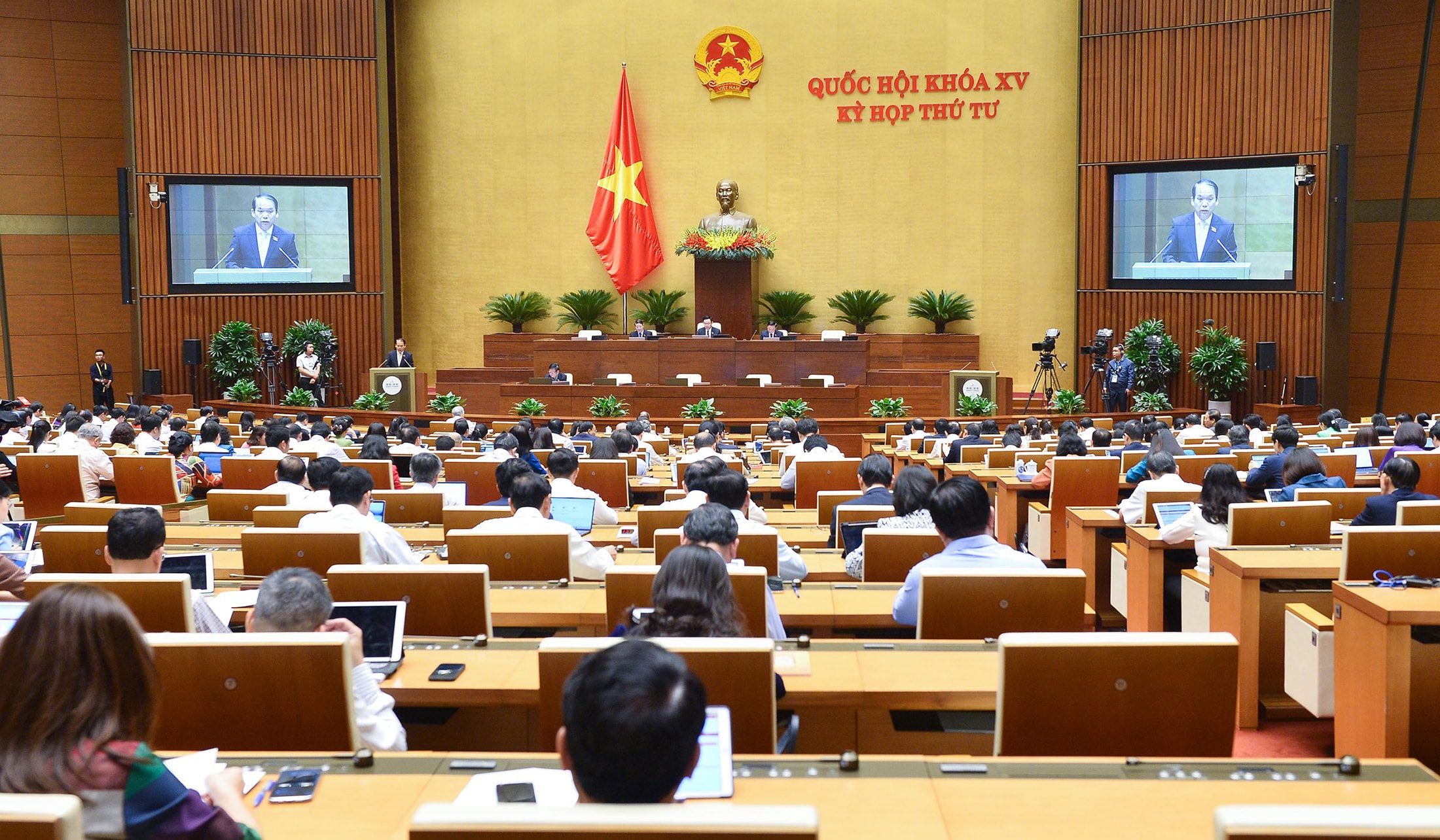
Administrative reform, especially administrative procedure reform according to the "one-stop" and "one-stop" mechanisms, has been actively implemented. The awareness, responsibility, spirit and attitude of serving organizations and citizens of the staff and civil servants at the grassroots level have had many positive changes. The work of receiving people, handling petitions, letters, suggestions, reflections, denunciations and complaints from citizens has been carried out systematically and effectively by the grassroots authorities. The work of dialogue with the people has been focused on and effectively implemented by Party committees and authorities at all levels, promptly removing difficulties, relieving people's frustrations, creating social consensus, contributing to strengthening people's trust in the leadership of Party committees, direction and administration of the authorities at the grassroots level. The review, amendment, supplementation and implementation of village, hamlet and residential group conventions and regulations must be ensured according to regulations, in accordance with the good traditions of the nation, eliminating backward customs and building a cultural life.
However, the Law on Implementing Democracy at the Commune, Ward and Town Levels is still formal and not substantial in some places and in some matters; with the motto "People know, people discuss, people do, people inspect, people supervise, people benefit", the publicity of some programs, projects and works in some localities and bases is not complete and timely. The reception of people's opinions, the settlement of petitions, the assurance of people's legitimate rights and interests, and legitimate aspirations are not timely, not linked to the implementation of discipline, order and law.
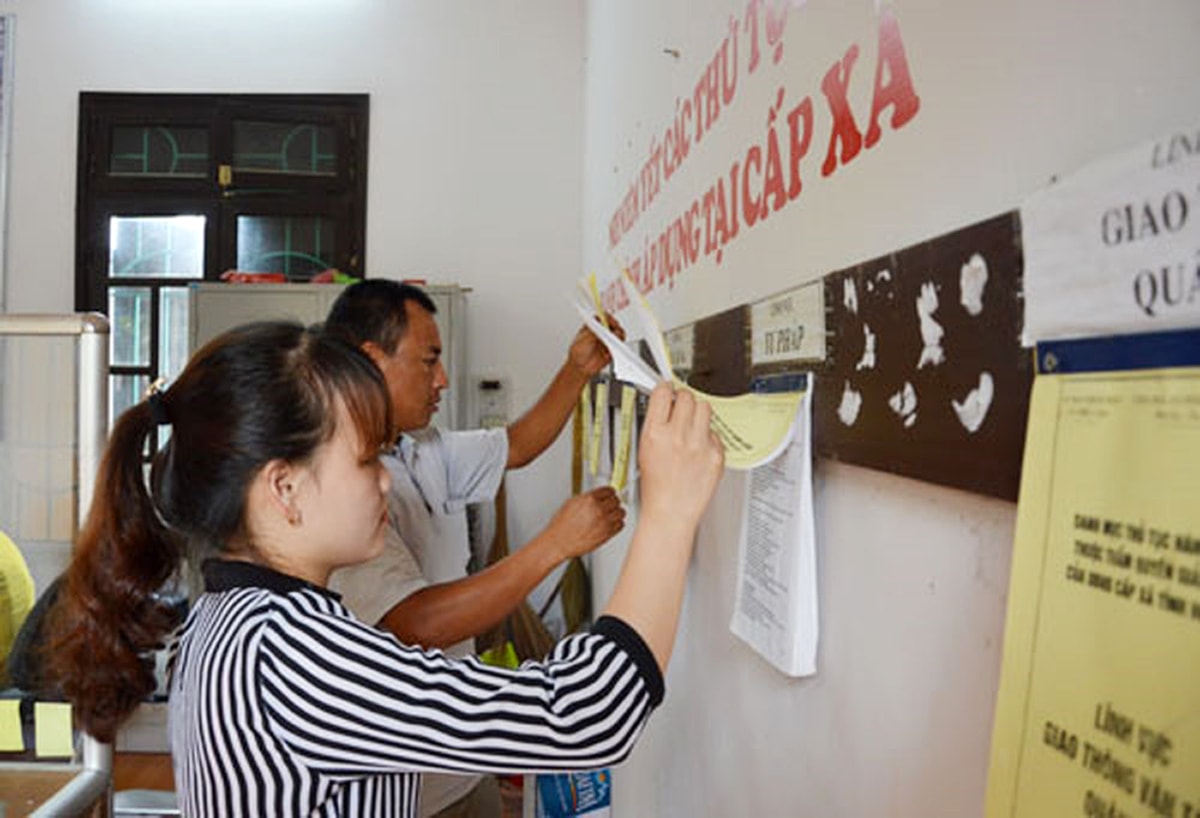
The causes of the above limitations and weaknesses are due to the fact that the leadership and direction of the implementation of the Law on Democracy at the Grassroots level by some Party committees and authorities at the grassroots level have not received due attention. The work of grasping the people's situation, especially newly arising, sensitive, prominent, urgent, and untimely issues, etc. The work of reconciliation at the grassroots level and handling of conflicts that arise, creating "hot spots", at times and in some places, has not been done well, and a number of major, complicated, and prolonged incidents have occurred. A number of cadres, party members, civil servants, and public employees have not yet promoted their pioneering and exemplary role in the fight against corruption, negativity, and violations of the law.
Over the past 35 years of implementing the renovation, our Party has inherited and applied Ho Chi Minh's thoughts on democracy, on building the peasant class, and on building new rural areas. The documents of the 13th Party Congress clearly oriented: "Practice and widely promote socialist democracy, the people's mastery and role as the main subject; consolidate and enhance people's trust, and strengthen social consensus"(13). Implementing Resolution No. 19-NQ/TW, dated June 16, 2022, the 5th Central Conference of the 13th tenure, "On agriculture, farmers, and rural areas to 2030, with a vision to 2045", puts forward the correct viewpoint that agriculture, farmers, and rural areas are three elements that are closely related, intertwined, and inseparable, closely linking sustainable rural development with the urbanization process in the direction of "ecological agriculture, modern rural areas, civilized farmers"; at the same time, affirming that farmers are the subject and the center of the process of agricultural development, rural economy, and new rural construction. The Resolution sets out the first main tasks and solutions: to enhance the role, position, and mastery capacity, and comprehensively improve the material and spiritual life of farmers and rural residents; Ensure the right to mastery of farmers and rural residents according to the motto "People know, people discuss, people do, people check, people supervise, people benefit".
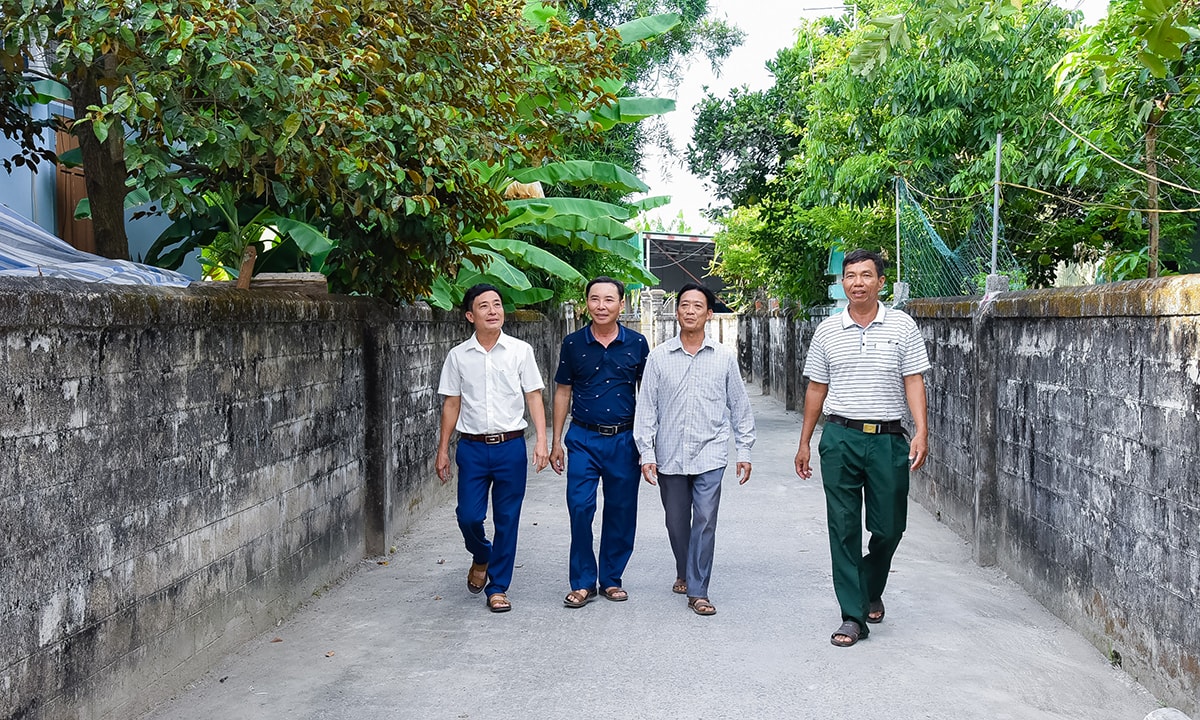
To improve the quality and effectiveness of practicing democracy in rural areas according to Decision No. 263/QD-TTg dated February 22, 2022 of the Prime Minister, "Approving the National Target Program on New Rural Construction for the 2021-2025 period", all levels and sectors in the entire political system must synchronously implement a number of solutions, such as strengthening the leadership of Party committees, Party organizations, and grassroots authorities; promoting the role of the Vietnam Fatherland Front and socio-political organizations; improving the intellectual level of the people, promoting the role of people as masters, strengthening the rule of law, ensuring discipline and social order; improving the qualities, capacity, qualifications, and exemplary behavior of cadres, Party members, civil servants, and public employees; enhancing the effectiveness of using media and information technology in practicing democracy at the grassroots level. The departments, ministries and branches in the Central Steering Committee closely coordinate with the provinces and cities to issue necessary guidance documents according to their authority; regularly inspect, urge and direct the implementation process. The People's Committees of provinces and cities play an important role in developing and issuing implementation plans, such as capital sources, goals, tasks, and clearly assigning responsibilities to departments, departments, branches, districts, towns and cities for implementation. Continue to respond to the emulation movement "The whole country joins hands to build new rural areas" launched by the Prime Minister, associated with the campaign "The whole people unite to build new rural areas and civilized urban areas" for the period 2021 - 2025, the period 2025 - 2030.
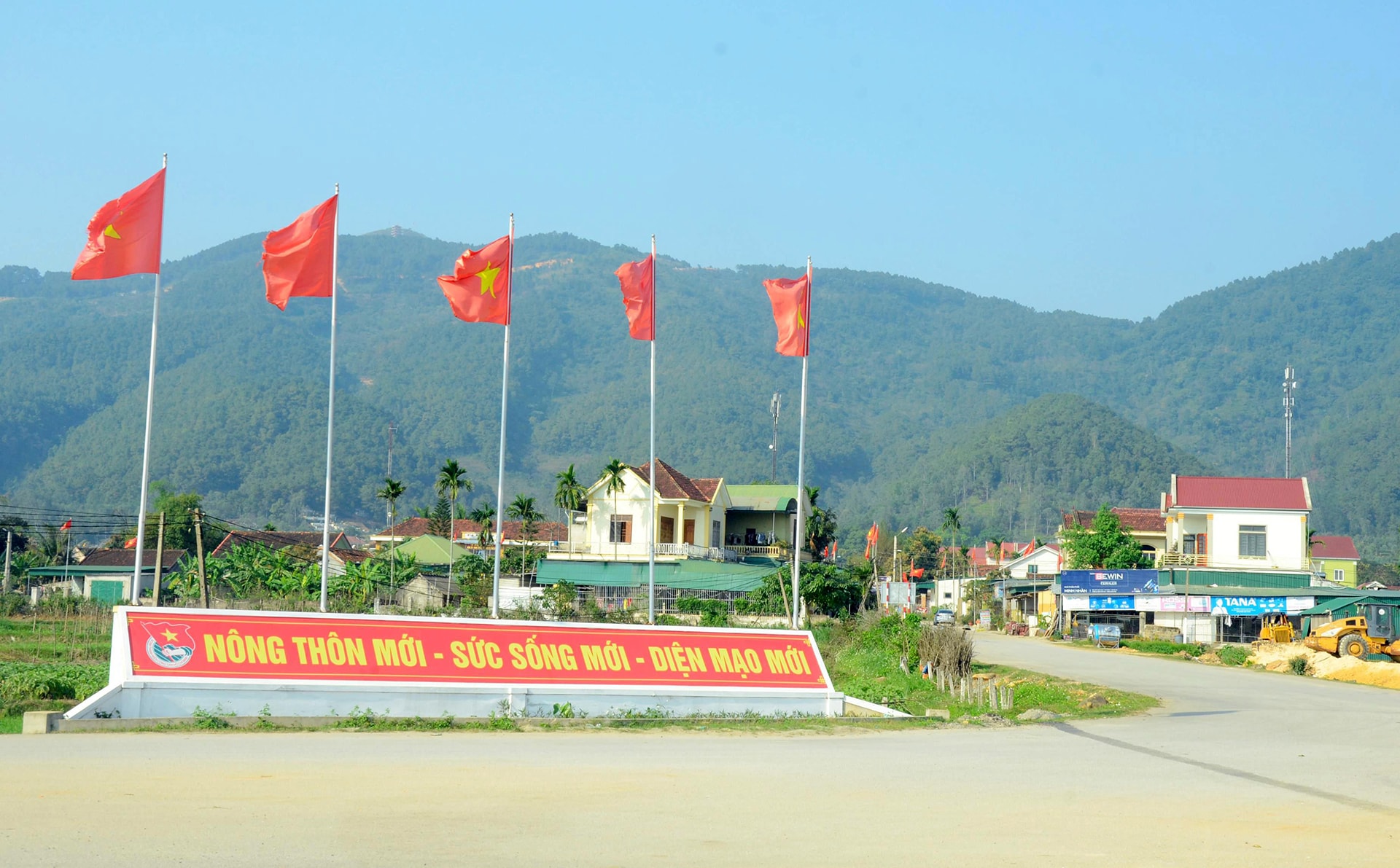

One is, building modern countryside.
Creatively applying Ho Chi Minh's thoughts to the practice of building modern rural areas and civilized farmers is a big issue that requires a roadmap and appropriate steps, close to the reality in each region of the country. The content of building modern rural areas is to effectively implement the National Target Program on New Rural Construction for the period 2021 - 2025 and the following periods.
To build modern rural areas, Party committees at all levels must lead and direct the entire political system to promote people's mastery, exploit all resources to effectively implement the set of criteria for new rural communes and the set of national criteria for advanced new rural communes in the period 2021-2025. Building modern rural areas must have appropriate planning according to the socio-economic development orientation, with a long-term vision, with functional areas for people's livelihood, industrial parks, small-scale industries and services to ensure high-income jobs for rural residents, contributing to the goal of "leaving agriculture but not leaving home", associated with good environmental protection; at the same time, strengthening planning management and organizing effective implementation according to planning. Exploit and maximize all resources to build socio-economic infrastructure, such as transportation, irrigation, electricity, cultural facilities, trade, information and communication, and rural residential housing, step by step, in a synchronous, high-quality, and effective manner. Modern rural construction is associated with progress in implementing income criteria, multidimensional poverty reduction, with a high rate of trained workers, developing diverse linkage models, cooperative models, agricultural extension, craft village development, etc. for effective production and business. Modern rural construction must be associated with cultural - social - environmental development, such as education and training, health care, culture, environmental protection, and food safety; at the same time, modern rural construction is associated with building a clean and strong political system, with a team of leaders, managers, civil servants, and public employees with knowledge, experience, good qualities and ethics, and closeness to the people.
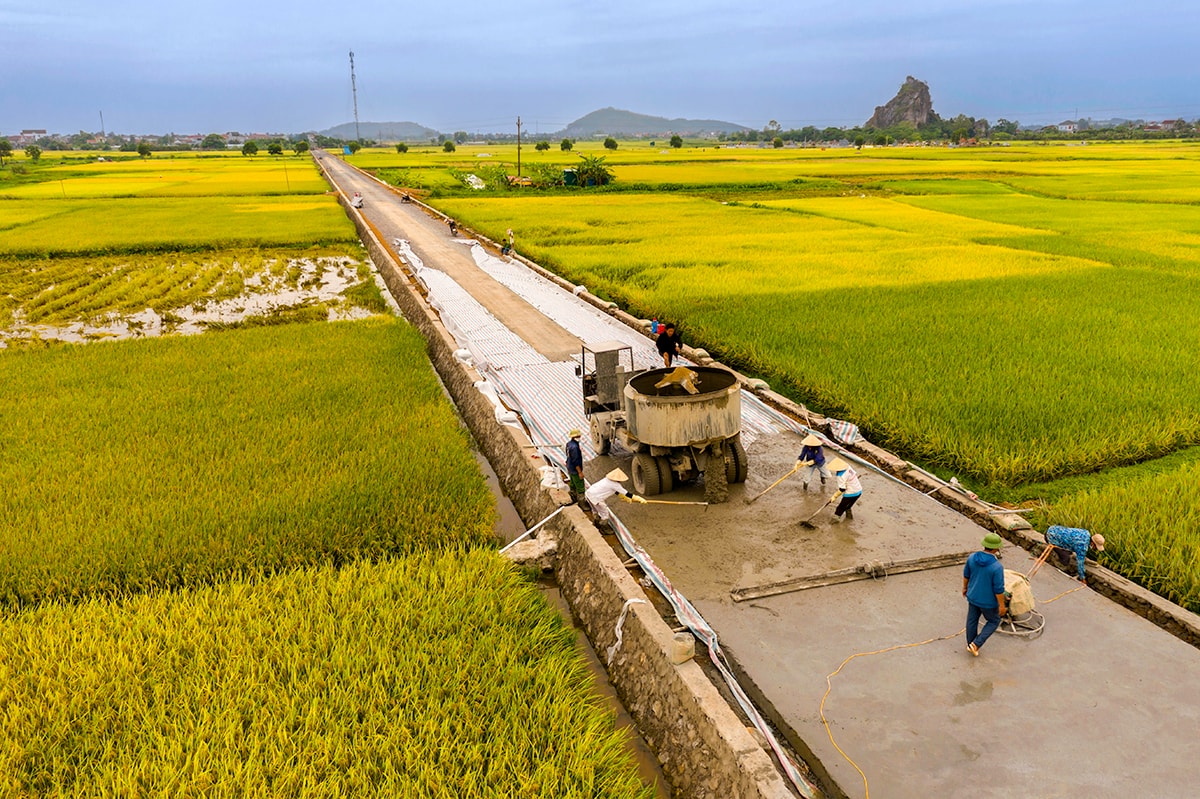
On that basis, step by step strive to achieve the general goals of the National Target Program on New Rural Construction launched by the Prime Minister. Implement restructuring of the agricultural sector, develop the rural economy, urbanization process, go into depth, effectively and sustainably; implement the construction of advanced new rural areas, model new rural areas and new rural areas at the village and hamlet levels. Improve the material and spiritual life of rural people, promote gender equality. Build synchronous and gradually modernized rural economic and social infrastructure, ensure the environment and rural landscape are "bright, green, clean, beautiful, safe, rich in traditional cultural identity, adapt to climate change and sustainable development".
To achieve that great goal, first of all, ministries, departments, functional branches, Party committees, and authorities of provinces and cities must strengthen propaganda, dissemination, and implementation of resolutions, decisions, circulars, and guidelines on new rural construction; create a profound change in awareness among each cadre, party member, and citizen; promote and exploit all capital sources, including investment capital, career capital, central capital, local capital, and socialized capital to build infrastructure, develop the economy, and preserve rural cultural identity. In particular, pay attention to leading and directing the reorganization of production, a factor that increases farmers' income. The reorganization of production must be closely linked with the reorganization of rural society in the direction of cooperation and association in production, preservation, processing, and trading of agricultural products, craft village products, and the development of agricultural tourism, community tourism, etc.
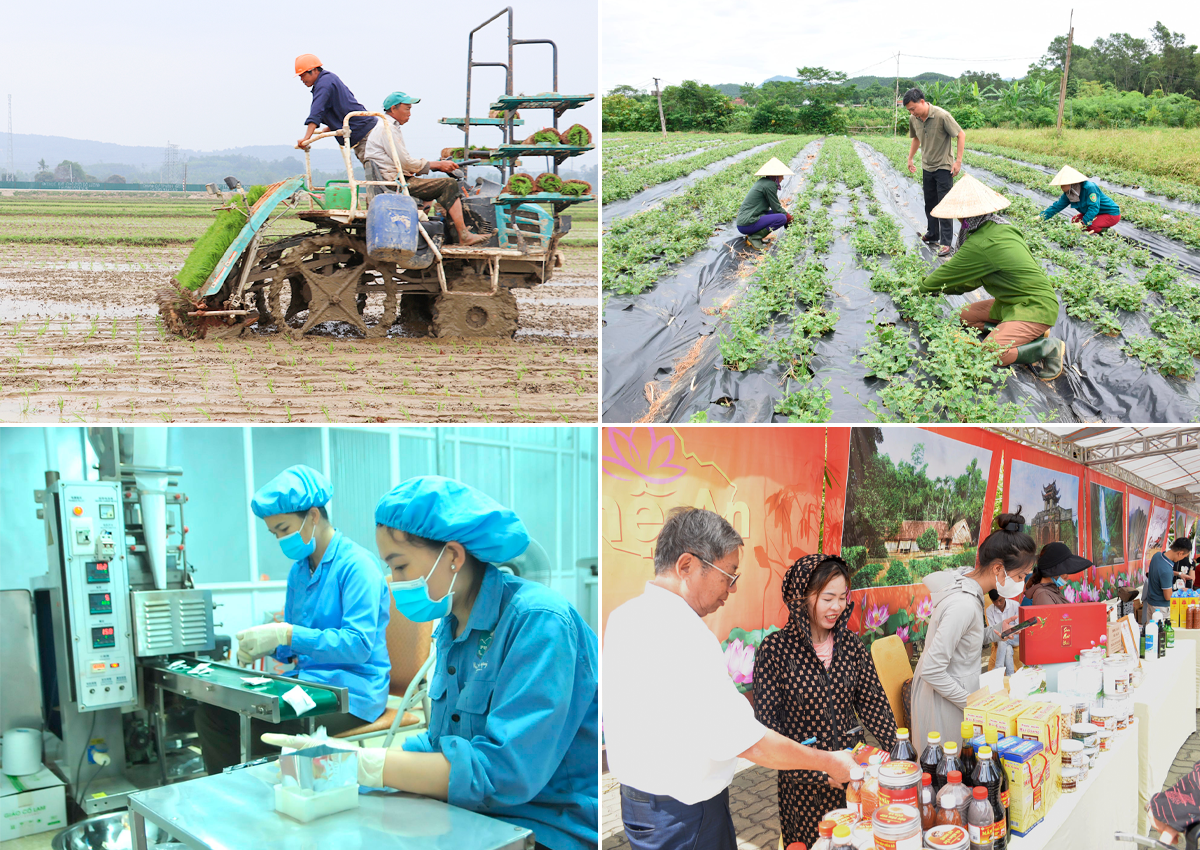
Second, building civilized farmers
Building civilized farmers is a very big and important issue for the Party. In order for farmers to reach a civilized level and take on the role of the subject and the central position, it takes time, methods, and specific positive steps. According to the Central Committee's assessment, the income and material and spiritual life of rural residents are constantly improving, the rate of poor households is decreasing rapidly, the number of well-off and rich households is increasing. In particular: "Vocational training, job creation, and restructuring of rural labor still have many shortcomings; rural labor tends to age; labor productivity and average income of rural residents are still low, the rate of poor households is still high, especially in remote areas, and ethnic minority areas"(14). A civilized farmer must first of all be an educated farmer. To do so, the Party Committee must lead the entire political system to do a good job of propaganda, so that each farmer can change his awareness of his role as a subject, have a self-reliant mindset, have knowledge, skills, capacity, and courage to master himself, master the construction and development of rural communities. The press and news agencies are sharp tools, regularly updating information to convey to farmers to properly implement their principles and purposes.
On that basis, the Central Committees, ministries, and functional branches, Party committees, and authorities at all levels have synchronous, scientific, and practical solutions for each region and rural area, to gradually implement "farmer intellectualization". The Party and the State will soon supplement mechanisms and policies to support farmers in accessing, training in knowledge, training in skills, updating advanced techniques and technologies, being equipped with new knowledge, mastering machinery and technological equipment, etc. Thereby, farmers will update themselves on new issues arising in the production and business process, to research, analyze, and solve factors related to productivity, quality, and product prices; at the same time, be more proactive in handling the impacts of climate change, natural disasters, epidemics, and effectively using new varieties, pesticides, veterinary drugs, and food safety and hygiene. The State continues to supplement mechanisms and policies to create the best environment and conditions for the connection of four houses: Farmers, State, scientists, and businesses. The closer this connection is, the higher the value of farmers' knowledge will be, and agriculture will develop rapidly and sustainably. It is necessary to conduct research to plan and develop training schools for farmers and farmers' children, because to have a professional agriculture, there must be a team of professional farmers. To have a knowledge-based agriculture, farmers must be educated.
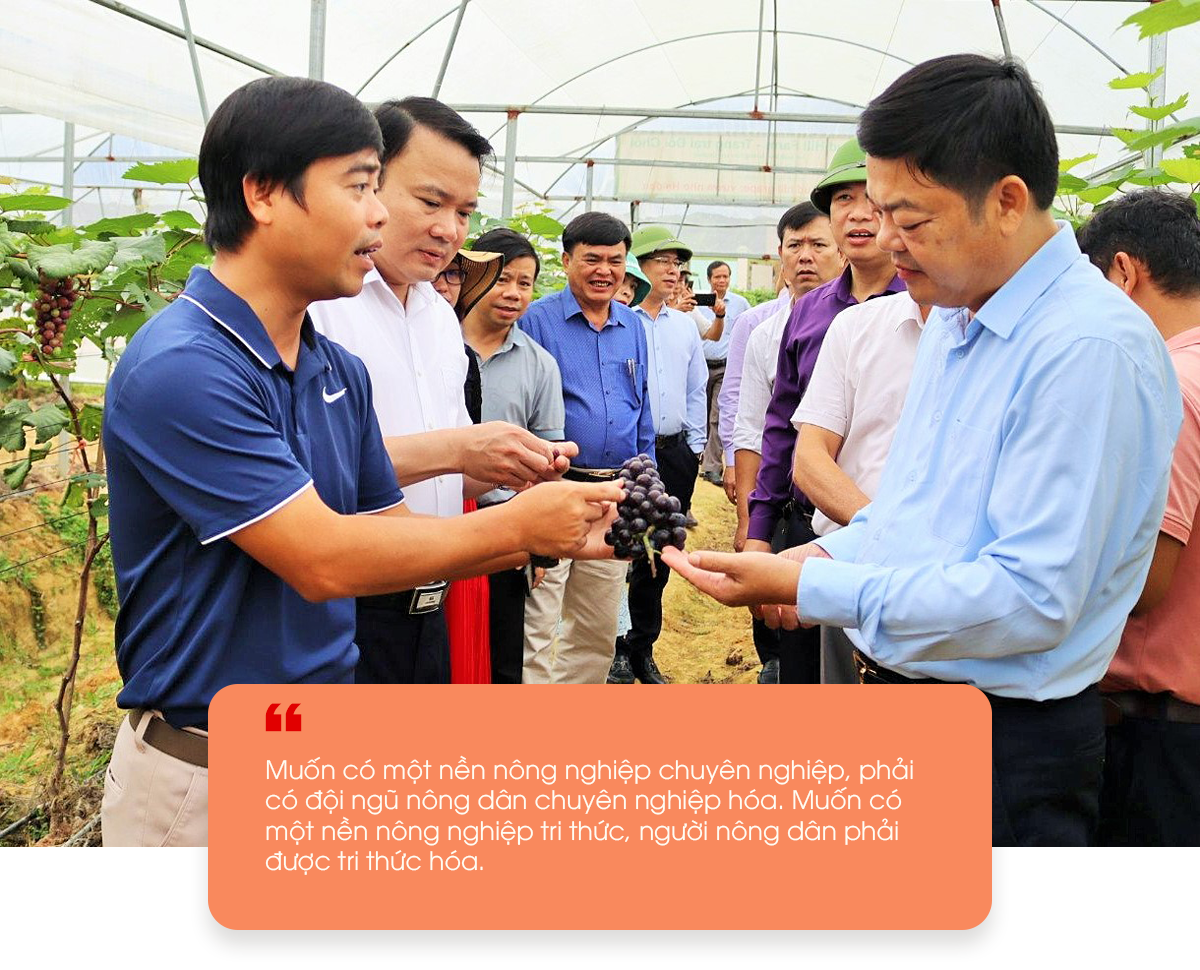
In addition to providing knowledge about production, business, enterprise and cooperative management, it is necessary to equip civilized farmers with cultural knowledge so that they can proactively participate with the community, organize recreational activities, sports, exercise, and build spiritual life in rural areas; at the same time, equip farmers with knowledge so that they can be autonomous in contributing to protect, embellish, and promote the heritage, traditions, and fine cultural identities of ethnic groups in regions and areas across the country. Civilized farmers are those who are conscious of protecting nature, protecting the environment, building "village and neighborhood love", supporting and voluntarily building groups and cooperatives, and building connections to develop the economy and develop rural culture.
(1) Ho Chi Minh: Complete Works, National Political Publishing House Truth, Hanoi, 2011, vol. 1, p. 225
(2) Ho Chi Minh: Complete Works, op. cit., vol. 8, p. 253
(3) Ho Chi Minh: Complete Works, op. cit., vol. 1, p. 221
(4) Ho Chi Minh: Complete Works, op. cit., vol. 2, p. 564
(5) Ho Chi Minh: Complete Works, op. cit., vol. 6, p. 248
(6) Ho Chi Minh: Complete Works, op. cit., vol. 7, p. 56
(7) Ho Chi Minh: Complete Works, op. cit., vol. 6, p. 248
(8) Complete Party Documents, National Political Publishing House, Hanoi, 2002, vol. 21, p. 663
(9) Ho Chi Minh: Complete Works, op. cit., vol. 4, p. 134
(10) Ho Chi Minh: Complete Works, op. cit., vol. 4, p. 246
(11) Ho Chi Minh: Complete Works, op. cit., vol. 15, p. 258
(12) Ho Chi Minh: Complete Works, op. cit., vol. 15, p. 391
(13) Documents of the 13th National Congress of Delegates, National Political Publishing House Truth, Hanoi, 2021, vol. I, p. 38
(14) Documents of the 5th Conference of the 13th Party Central Committee, National Political Publishing House Truth, Hanoi, 2022, p. 91
